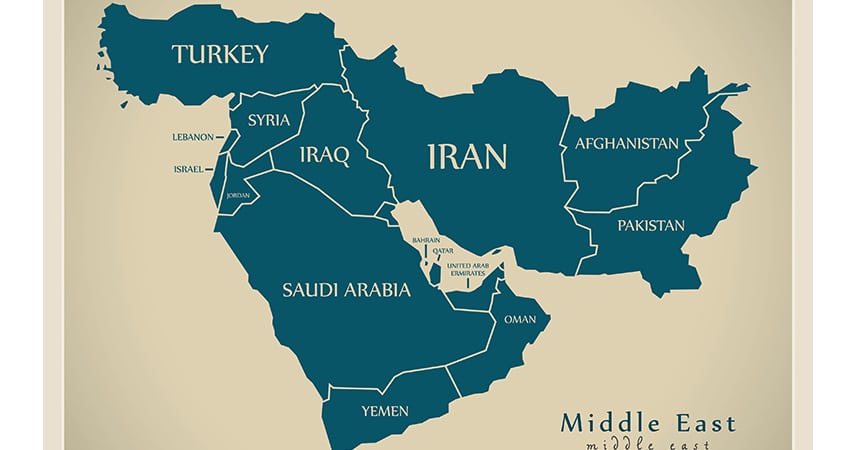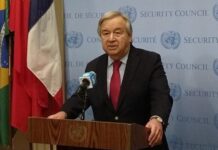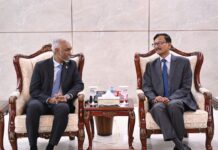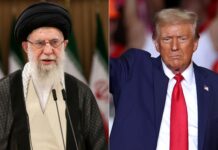NICOSIA: The humiliating retreat of the United States from Afghanistan and the perceived disengagement of the US from the Middle East or at least the reduced emphasis Joe Biden gives to the region has led the Gulf States and other countries to reassess their positions and try to mend relations with old rivals.
This resulted in some rather surprising foreign policy shifts among several Middle Eastern states and perhaps has increased prospects for stability in the Gulf.
Although the US Administration says that it is still engaged in the Middle East, there is no doubt that much more attention in the US foreign policy is now given to China, Russia, and the far east. As a result, Arab states, particularly Saudi Arabia, the UAE and other Gulf Cooperation Council states wonder how reliable the United States as a security provider is.
Gonul Tol, Director of the M.E. Institute’s Centre for Turkish Studies says: “Signs of a US retreat from the region, highlighted by the hasty withdrawal from Afghanistan shattered faith in Washington’s regional role”.
This made several Middle East leaders realize that in the absence of the US protective shield they must bury the hatchet with old enemies or at least reduce the number of the hostile countries they have to face. So, they decided to give diplomacy chance and see what happens.
Let’s see now the big changes taking place in inter-state relations in the Middle East.
For the first time in history, an Israeli Prime Minister visited the United Arab Emirates. Last week Naftali Bennett paid an official visit to the UAE and had talks in Abu Dhabi with Crown Prince Sheikh Mohammed bin Zayed. The two leaders discussed possibilities of cooperating in the fields of agriculture, food security, advance technology, health, renewable energy etc.
Bennett said he believed the two countries could “set an example of how we can make peace in the Middle East”. This meeting comes just fifteen months after the two countries signed, in the context of the Abraham Accords, the normalization of relations between Israel and the UAE.
In the flurry of diplomatic activity taking place in the region, Saudi Arabia’s de facto ruler Mohammed bin Salman (also known as MBS), who apparently decided that the Saudi Kingdom should try to resolve problems with countries with which it had been at loggerheads in the past, visited Doha on December 8 and had talks with the Emir of Qatar Sheikh Tamin bin Hamad Al Thani.
The two leaders declared their willingness to enhance cooperation between their countries and to support security and stability in the region.
It should be noted that MBS was the man who in 2017 organized Saudi Arabia, the UAE, Bahrain, and Egypt to cut off diplomatic ties with Qatar and impose a trade embargo and a blockade on the small emirate, allegedly for backing Islamist militants. The four Arab countries restored diplomatic relations with Qatar and ended their embargo on January 5, 2021.
MBS has already visited the UAE, Bahrain, and Kuwait in an effort to reduce as far as possible geopolitical and strategic differences existing among GCC states and particularly in their relations with Iran.
Kuwait and Qatar maintain relations with Iran, while Saudi Arabia, the UAE and Bahrain try to stop Iran’s reach in the region.
The reconciliation achieved among the Gulf states has allowed Turkey, which has been a close ally of Qatar, to make efforts to restore relations with the UAE, Egypt and Saudi Arabia.
Turkish President Recep Tayyip Erdogan paid a visit to the UAE last February and tried to make a fresh start in relations between the two countries. In November Abu Dhabi’s Crown Prince Mohammed bin Zayed (MBZ) paid a visit to Turkey, the first such visit in nine years since relations between the two countries were frozen in 2012.
The UAE and Turkey hold widely different views on the question of the Muslim Brotherhood and support different sides in the Libyan conflict. Erdogan also blamed the UAE for backing the 2016 coup in Turkey.
A clear sign of a new page in relations between Ankara and Abu Dhabi is the announcement that the UAE has allocated a $ 10 billion dollar fund for strategic investments in Turkey, the economy of which is crumbling under an unprecedented fall in the exchange rate of the Turkish Lira.
Recently, Turkey has been trying hard to restore its frosty relations with Egypt, although in the past Erdogan repeatedly verbally attacked the Egyptian President Abdel Fattah al-Sisi and called him “an illegitimate tyrant”. The Egyptian Foreign Ministry in its turn described Erdogan’s rule as “oppressive and authoritarian”.
Egyptian Foreign Minister Sameh Shoukry responded to Turkey’s overtures by saying that “Egypt is eager to find a resolution and a formula for restoring relations with Turkey, but more work needs to be done”.
A major change in the region could happen if talks taking place intermittently between Saudi Arabia and Iran and the United Arab Emirates and Iran lead to a thaw in their relations and perhaps end the proxy wars in Yemen and elsewhere.
So, it is evident that the US Afghanistan debacle has shaken its allies in the Arab world and the Middle East in general and forced their governments to reassess their positions and rivalries as well as try to find peaceful solutions to long existing problems.
As author Amin Saikal, an expert on Middle East affairs, points out: “The Afghanistan debacle has shaken many of America’s allies around the world, making them wonder about the US’s reliability as a partner…. America’s Afghanistan fiasco has set in motion a series of realignments in the region. And it illustrates that the pax Americana that dominated the Middle East for most of the post-World War II period is gradually being dismantled. The process stands to accelerate with President Joe Biden’s promise to withdraw 2,500 US troops from Iraq by the end of this year.” (ANI)







